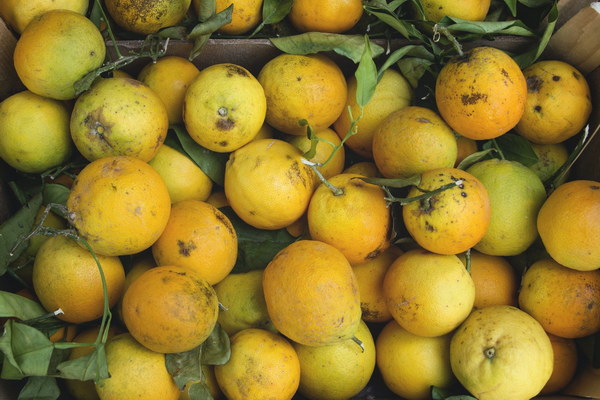Harmonizing Your Well-being The Timeless Elixirs of Xinjiang's Herbal Remedies
In the heart of the vast Xinjiang region, nestled among the towering peaks of the Tianshan Mountains and the sprawling deserts, lies a treasure trove of natural healing. Xinjiang, with its unique climate and rich biodiversity, has long been a haven for traditional medicine. The region's indigenous herbs and plants are not just ingredients for local cuisine but also potent remedies for various bodily imbalances. Here, we delve into the world of Xinjiang's herbal remedies, exploring how these natural elixirs can harmonize your body and mind.
The Xinjiang Advantage: A Climate of Healing
Xinjiang's distinctive climate, characterized by long, cold winters and hot summers, plays a crucial role in the growth of its medicinal herbs. The intense sunlight and cool temperatures are perfect for cultivating a wide array of beneficial plants, each with its own unique healing properties.
1. Hawthorn (Shan Zao): The Heart's Guardian
Hawthorn, or Shan Zao in Chinese, is one of the most revered herbs in Xinjiang. Traditionally used to strengthen the heart and improve blood circulation, it is often recommended for those suffering from heart palpitations, chest pain, and hypertension. Rich in antioxidants, hawthorn also helps to lower cholesterol levels and reduce the risk of heart disease.
2. Astragalus (Huang Qi): The Immune System's Ally
Astragalus, known as Huang Qi in Chinese, is a powerhouse of an herb. Native to Xinjiang, it is renowned for its immune-boosting properties. Used in traditional Chinese medicine to treat colds, flu, and other infections, astragalus can also enhance overall vitality and promote a healthy immune system.
3. Fennel (Huang Lian): The Digestive Aid
Fennel, or Huang Lian in Chinese, is another herb that has found its way into Xinjiang's traditional medicine. This aromatic plant is well-known for its ability to soothe the digestive tract and alleviate symptoms of indigestion, bloating, and gas. Fennel seeds are often consumed after meals to aid in digestion and improve overall gut health.
4. Siberian Ginseng (Ren Shen): The Stress Reliever
Siberian ginseng, or Ren Shen in Chinese, is a popular herb in Xinjiang for its adaptogenic properties. It is believed to help the body adapt to stress, improve mental clarity, and boost energy levels. Siberian ginseng is often used to treat fatigue, anxiety, and other stress-related conditions.
5. Prunella (Xia Ku Cao): The Liver's Protector
Prunella, or Xia Ku Cao in Chinese, is another herb that has made its way to Xinjiang's healing arsenal. Known for its liver-protecting properties, prunella is often used to treat hepatitis, jaundice, and other liver-related disorders. It also helps to reduce inflammation and improve liver function.

The Art of Harmonization: Xinjiang's Herbal Remedies in Practice
In Xinjiang, the practice of herbal medicine is an art form that requires a deep understanding of both the herbs and the individual. Traditional healers, or Shi-Yi, combine their knowledge of local herbs with an understanding of the patient's unique constitution to create personalized remedies.
The process typically involves a thorough examination of the patient's symptoms, diet, lifestyle, and environment. Based on this assessment, the Shi-Yi selects the appropriate herbs and prepares them in various forms, such as teas, powders, or tinctures, to address the patient's specific needs.
Embracing Nature's Healing Power
Xinjiang's herbal remedies offer a natural and holistic approach to wellness, emphasizing the importance of balance and harmony within the body. By harnessing the power of nature, these traditional remedies can help to restore balance, improve health, and promote a sense of well-being.
As modern medicine continues to advance, the world is increasingly turning to traditional practices like those found in Xinjiang. By embracing the wisdom of the past, we can discover the timeless healing properties that nature has to offer, and in doing so, unlock the true potential of our health and happiness.









